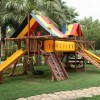 “There were motivations to eat that many baby boomers heard as they were growing up. Families across America were learning how to eat by the rules. But, according to current research, those rules may have done more harm than good…” This 2-page Family Album Radio transcript was written by Donna Davis, and published by the UF Department of Family Youth and Community Sciences, February 2013.
“There were motivations to eat that many baby boomers heard as they were growing up. Families across America were learning how to eat by the rules. But, according to current research, those rules may have done more harm than good…” This 2-page Family Album Radio transcript was written by Donna Davis, and published by the UF Department of Family Youth and Community Sciences, February 2013.
http://edis.ifas.ufl.edu/fm017
Tag: Donna Davis
Why Fragile Families Don’t Marry (FAR3003/FM013)
 “He can’t support us. Why should I marry him?” This mom is not alone in her resistance to matrimony. In fact, increasing evidence has many of the opponents of the Healthy Marriage Initiative on the offensive. While the reauthorization of the welfare reform bill will allocate substantial funds to states for the development of programs for improving relations between unmarried parents, those who challenge the bill argue that marriage is not the answer… This 2-page Family Album Radio transcript was written by Donna Davis, and published by the UF Department of Family Youth and Community Sciences, February 2013.
“He can’t support us. Why should I marry him?” This mom is not alone in her resistance to matrimony. In fact, increasing evidence has many of the opponents of the Healthy Marriage Initiative on the offensive. While the reauthorization of the welfare reform bill will allocate substantial funds to states for the development of programs for improving relations between unmarried parents, those who challenge the bill argue that marriage is not the answer… This 2-page Family Album Radio transcript was written by Donna Davis, and published by the UF Department of Family Youth and Community Sciences, February 2013.
http://edis.ifas.ufl.edu/fm013
The Benefits of Breastfeeding (FAR8001/FM011)
 Medical research has found many compelling advantages to breastfeeding, not only for infants, but for mothers as well. According to the American Academy of Pediatrics, the advantages include nutritional, immunologic, developmental, psychological, social, economic, and environmental benefits. This 2-page Family Album Radio transcript was written by Donna Davis, and published by the UF Department of Family Youth and Community Sciences, February 2013.
Medical research has found many compelling advantages to breastfeeding, not only for infants, but for mothers as well. According to the American Academy of Pediatrics, the advantages include nutritional, immunologic, developmental, psychological, social, economic, and environmental benefits. This 2-page Family Album Radio transcript was written by Donna Davis, and published by the UF Department of Family Youth and Community Sciences, February 2013.
http://edis.ifas.ufl.edu/fm011
Parent Time (FAR0401/FM008)
 Parenting an infant is one of the most exciting and fulfilling opportunities of a lifetime. At the same time, it can be one of the most stressful periods in a person’s life. Research has shown that babies as young as one month old can sense and will be affected by a parent who is depressed or angry. Finding the delicate balance between the new parents’ needs and the baby’s needs is very important. This 2-page Family Album Radio transcript was written by Donna Davis, and published by the UF Department of Family Youth and Community Sciences, February 2013.
Parenting an infant is one of the most exciting and fulfilling opportunities of a lifetime. At the same time, it can be one of the most stressful periods in a person’s life. Research has shown that babies as young as one month old can sense and will be affected by a parent who is depressed or angry. Finding the delicate balance between the new parents’ needs and the baby’s needs is very important. This 2-page Family Album Radio transcript was written by Donna Davis, and published by the UF Department of Family Youth and Community Sciences, February 2013.
http://edis.ifas.ufl.edu/fm008
Renter’s Insurance (FAR5007/FM382)
 “Whether you’re a family living in a rental house or apartment, or a parent whose children are in a rental situation, one of the costs that people tend to forget or ignore is renter’s insurance. But according to consumer science researchers, everyone renting an apartment or a house should have renter’s insurance. It will protect you and your family against losses from disasters such as hurricanes and fire.” This 2-page Family Album Radio transcript was written by Mary Harrison and Donna Davis, and published by the UF Department of Family Youth and Community Sciences, August 2012.
“Whether you’re a family living in a rental house or apartment, or a parent whose children are in a rental situation, one of the costs that people tend to forget or ignore is renter’s insurance. But according to consumer science researchers, everyone renting an apartment or a house should have renter’s insurance. It will protect you and your family against losses from disasters such as hurricanes and fire.” This 2-page Family Album Radio transcript was written by Mary Harrison and Donna Davis, and published by the UF Department of Family Youth and Community Sciences, August 2012.
http://edis.ifas.ufl.edu/fm382
Protecting Your Family from Unintentional Poisoning (FAR5002/FM366)
 “In 2004, more than 2.4 million exposures to human toxins were reported to poison control centers in the United States. Almost all of them occurred in homes, and 85% percent of poison exposures were unintentional. More than half of them involved children under six years old. As a parent, that is a very frightening statistic.” This 2-page Family Album Radio transcript was written by Donna Davis, and published by the UF Department of Family Youth and Community Sciences, August 2012.
“In 2004, more than 2.4 million exposures to human toxins were reported to poison control centers in the United States. Almost all of them occurred in homes, and 85% percent of poison exposures were unintentional. More than half of them involved children under six years old. As a parent, that is a very frightening statistic.” This 2-page Family Album Radio transcript was written by Donna Davis, and published by the UF Department of Family Youth and Community Sciences, August 2012.
http://edis.ifas.ufl.edu/fm366
The Effect of Hospitalization on Older Couples (FAR3034/FM361)
 “Very often the tale is told of an elderly couple for whom the loss of one spouse is more than the other can bear—and the other partner dies relatively soon thereafter. Referred to as the bereavement effect, this phenomenon has been well studied and documented. Likewise, research has explored the weighty effect that a spouse’s illness has on the caregiving partner, also called caregiver burden. Studies have shown that declines in physical and mental health of a spouse are often linked to a decrease in their partner’s health.” This 2-page Family Album Radio transcript was written by Donna Davis, and published by the UF Department of Family Youth and Community Sciences, August 2012.
“Very often the tale is told of an elderly couple for whom the loss of one spouse is more than the other can bear—and the other partner dies relatively soon thereafter. Referred to as the bereavement effect, this phenomenon has been well studied and documented. Likewise, research has explored the weighty effect that a spouse’s illness has on the caregiving partner, also called caregiver burden. Studies have shown that declines in physical and mental health of a spouse are often linked to a decrease in their partner’s health.” This 2-page Family Album Radio transcript was written by Donna Davis, and published by the UF Department of Family Youth and Community Sciences, August 2012.
http://edis.ifas.ufl.edu/fm361
Does Divorce Make People Happy? (FAR4006/FM315)
 “The marriage and divorce trends of the “modern” American family have been studied for decades. In an attempt to further understand the outcomes of divorce, a team of family scholars headed by University of Chicago sociologist Linda Waite studied whether unhappily married adults who divorced were any happier than unhappily married people who stayed married.” This 2-page fact sheet was written by Donna Davis, and published by the UF Department of Family Youth and Community Sciences, August 2012.
“The marriage and divorce trends of the “modern” American family have been studied for decades. In an attempt to further understand the outcomes of divorce, a team of family scholars headed by University of Chicago sociologist Linda Waite studied whether unhappily married adults who divorced were any happier than unhappily married people who stayed married.” This 2-page fact sheet was written by Donna Davis, and published by the UF Department of Family Youth and Community Sciences, August 2012.
http://edis.ifas.ufl.edu/fm315
Newborn Mortality in the United States (FAR0427/FM403)
 “While the United States boasts some of the finest healthcare facilities and services known to humankind, the country also has one of the highest newborn mortality rates in the industrialized world. In fact, according to the World Health Organization, the U.S. is tied for second to last (with Hungary, Malta, Poland and Slovakia), with 5 newborn deaths per 1,000 live births (World Health Organization 2005).” This 2-page Family Album Radio transcript was written by Donna Davis and published by the UF Department of Family Youth and Community Sciences, August 2012.
“While the United States boasts some of the finest healthcare facilities and services known to humankind, the country also has one of the highest newborn mortality rates in the industrialized world. In fact, according to the World Health Organization, the U.S. is tied for second to last (with Hungary, Malta, Poland and Slovakia), with 5 newborn deaths per 1,000 live births (World Health Organization 2005).” This 2-page Family Album Radio transcript was written by Donna Davis and published by the UF Department of Family Youth and Community Sciences, August 2012.
http://edis.ifas.ufl.edu/fm403
Adolescent TV Use (FAR1206/FM401)
 “More than likely you’ve commonly heard the most recent generations referred to as Generation X and now Generation Y. However, in a new report from the Kaiser Family Foundation, researchers renamed this younger group as “Generation M” to stand for media influence in their lives. Indeed, there are days that I wonder if my children can unplug from the many digital and electronic devices in their lives.” This 2-page Family Album Radio transcript was written by Donna Davis and published by the UF Department of Family Youth and Community Sciences, August 2012.
“More than likely you’ve commonly heard the most recent generations referred to as Generation X and now Generation Y. However, in a new report from the Kaiser Family Foundation, researchers renamed this younger group as “Generation M” to stand for media influence in their lives. Indeed, there are days that I wonder if my children can unplug from the many digital and electronic devices in their lives.” This 2-page Family Album Radio transcript was written by Donna Davis and published by the UF Department of Family Youth and Community Sciences, August 2012.
http://edis.ifas.ufl.edu/fm401
Adult Children of High-Conflict Marriages (FAR3037/FM394)
 “Most of us have probably heard someone declare that they had remained in their marriage “for the sake of the kids.” Research suggests, however, that logic may not hold up. In the long run, children whose parents are in high-conflict marriages may not be any better off than children whose parents divorce. While divorce has been shown to create significant negative outcomes for many children over the course of their lives, new research shows that conflict in marriage can have lasting effects into adulthood as well.” This 2-page Family Album Radio transcript was written by Donna Davis, and published by the UF Department of Family Youth and Community Sciences, August.
“Most of us have probably heard someone declare that they had remained in their marriage “for the sake of the kids.” Research suggests, however, that logic may not hold up. In the long run, children whose parents are in high-conflict marriages may not be any better off than children whose parents divorce. While divorce has been shown to create significant negative outcomes for many children over the course of their lives, new research shows that conflict in marriage can have lasting effects into adulthood as well.” This 2-page Family Album Radio transcript was written by Donna Davis, and published by the UF Department of Family Youth and Community Sciences, August.
http://edis.ifas.ufl.edu/fm394
Factors of Adolescent Suicide (FAR1203/FM385)
 “The loss of a child to suicide can be particularly devastating to parents, friends, and others in the child’s life. When my daughter came home one day telling me of a classmate who was contemplating suicide, the flood of fear for her friend and for the fact that my daughter was so closely exposed to such pain was one of those life-stopping moments.” This 2-page Family Album Radio transcript was written by Donna Davis, and published by the UF Department of Family Youth and Community Sciences, August 2012.
“The loss of a child to suicide can be particularly devastating to parents, friends, and others in the child’s life. When my daughter came home one day telling me of a classmate who was contemplating suicide, the flood of fear for her friend and for the fact that my daughter was so closely exposed to such pain was one of those life-stopping moments.” This 2-page Family Album Radio transcript was written by Donna Davis, and published by the UF Department of Family Youth and Community Sciences, August 2012.
http://edis.ifas.ufl.edu/fm385
Teen Relationship Abuse Research Study (FAR1205/FM400)
 “When we think of violence between intimate partners, we often think of domestic abuse between adult men and women, and most often between husbands and wives. However, in a recent study commissioned by Liz Claiborne Inc., researchers discovered deep and troubling evidence that today’s teens are not only experiencing dating violence, but are accepting it as normal.” This 2-page Family Album Radio transcript was written by Donna Davis, and published by the UF Department of Family Youth and Community Sciences, August 2012.
“When we think of violence between intimate partners, we often think of domestic abuse between adult men and women, and most often between husbands and wives. However, in a recent study commissioned by Liz Claiborne Inc., researchers discovered deep and troubling evidence that today’s teens are not only experiencing dating violence, but are accepting it as normal.” This 2-page Family Album Radio transcript was written by Donna Davis, and published by the UF Department of Family Youth and Community Sciences, August 2012.
http://edis.ifas.ufl.edu/fm400
Parents' Spending on Teens (FAR1209/FM421)
 “In a recent study from Teenage Research Unlimited, researchers reported that teens spent $159 billion in 2005. My own experience raising three teens led me to believe that many of them spent their parents’ money in 2005.” This 2-page Family Album Radio transcript was written by Donna Davis, and published by the UF Department of Family Youth and Community Sciences, July 2012.
“In a recent study from Teenage Research Unlimited, researchers reported that teens spent $159 billion in 2005. My own experience raising three teens led me to believe that many of them spent their parents’ money in 2005.” This 2-page Family Album Radio transcript was written by Donna Davis, and published by the UF Department of Family Youth and Community Sciences, July 2012.
http://edis.ifas.ufl.edu/fm421
Old Maid No More (FAR3038/FM416)
 “Twenty years ago, women were being warned that, according to demographic research, if they didn’t marry by the time they were in their early twenties, they would likely live out their lives unwed. As a child, I was even told that “those” women became “old maids,” and I feared a similar fate. Fast-forward to 2006, and the news is quite different.” This 2-page Family Album Radio transcript was written by Donna Davis, and published by the UF Department of Family Youth and Community Sciences, July 2012.
“Twenty years ago, women were being warned that, according to demographic research, if they didn’t marry by the time they were in their early twenties, they would likely live out their lives unwed. As a child, I was even told that “those” women became “old maids,” and I feared a similar fate. Fast-forward to 2006, and the news is quite different.” This 2-page Family Album Radio transcript was written by Donna Davis, and published by the UF Department of Family Youth and Community Sciences, July 2012.
http://edis.ifas.ufl.edu/fm416
Playing It Safe with Play Equipment (FAR0086/FM415)
 “Raising my rough-and-tumble children at times took superhuman energy, patience, and constant supervision. Even the joyful vision of a playground could be daunting when the swing was used as a human slingshot and the slide had 101 uses, of which only one was acceptable. I’m sure many parents can relate to the fear of the unknown dangers on the playground.” This 2-page Family Album Radio transcript was written by Donna Davis, and published by the UF Department of Family Youth and Community Sciences, July 2012.
“Raising my rough-and-tumble children at times took superhuman energy, patience, and constant supervision. Even the joyful vision of a playground could be daunting when the swing was used as a human slingshot and the slide had 101 uses, of which only one was acceptable. I’m sure many parents can relate to the fear of the unknown dangers on the playground.” This 2-page Family Album Radio transcript was written by Donna Davis, and published by the UF Department of Family Youth and Community Sciences, July 2012.
http://edis.ifas.ufl.edu/fm415
Breastfeeding during Disaster (FAR0430/FM429)
 “As we’ve learned over the past couple of years, disaster can strike anyone, anywhere, and anytime. A natural disaster, whether hurricane, tornado, flood, or tsunami, can devastate areas and leave families without resources, sometimes for long periods of time. And while people of all ages suffer, infants can be at far greater risk. However, mothers can save their infants’ lives and protect them from illness by simply breastfeeding, even if they haven’t been breastfeeding their baby.” This 2-page Family Album Radio transcript was written by Donna Davis, and published by the UF Department of Family Youth and Community Sciences, July 2012.
“As we’ve learned over the past couple of years, disaster can strike anyone, anywhere, and anytime. A natural disaster, whether hurricane, tornado, flood, or tsunami, can devastate areas and leave families without resources, sometimes for long periods of time. And while people of all ages suffer, infants can be at far greater risk. However, mothers can save their infants’ lives and protect them from illness by simply breastfeeding, even if they haven’t been breastfeeding their baby.” This 2-page Family Album Radio transcript was written by Donna Davis, and published by the UF Department of Family Youth and Community Sciences, July 2012.
http://edis.ifas.ufl.edu/fm429
Teens and Dating: Tips for Parents (FAR1211/FM438)
 “I’ll never forget the initial shock I felt when my second grader came home from school one day to tell me that one of her friends was “going out” with one of the little boys in her class. “Going out?!” I asked. “What does that mean?” She couldn’t really answer, much to my relief. Many parents might likewise find themselves unprepared when they first learn their elementary and middle schoolers have developed perfectly normal crushes on their classmates.” This 2-page Family Album Radio transcript was written by Kate Fogarty and Donna Davis, and published by the UF Department of Family Youth and Community Sciences, July 2012.
“I’ll never forget the initial shock I felt when my second grader came home from school one day to tell me that one of her friends was “going out” with one of the little boys in her class. “Going out?!” I asked. “What does that mean?” She couldn’t really answer, much to my relief. Many parents might likewise find themselves unprepared when they first learn their elementary and middle schoolers have developed perfectly normal crushes on their classmates.” This 2-page Family Album Radio transcript was written by Kate Fogarty and Donna Davis, and published by the UF Department of Family Youth and Community Sciences, July 2012.
http://edis.ifas.ufl.edu/fm438
Nonresident Mothers (FAR0088/FM424)
 “We read and hear stories with some frequency about “deadbeat dads” or those nonresident fathers who fail to make child support payments. The issue has prompted numerous studies and legislative action as well. But have you ever heard of a “deadbeat mom”? Not likely or rarely. This is a growing problem that has remained largely under the radar.” This 2-page Family Album Radio transcript was written by Donna Davis, and published by the UF Department of Family Youth and Community Sciences, July 2012.
“We read and hear stories with some frequency about “deadbeat dads” or those nonresident fathers who fail to make child support payments. The issue has prompted numerous studies and legislative action as well. But have you ever heard of a “deadbeat mom”? Not likely or rarely. This is a growing problem that has remained largely under the radar.” This 2-page Family Album Radio transcript was written by Donna Davis, and published by the UF Department of Family Youth and Community Sciences, July 2012.
http://edis.ifas.ufl.edu/fm424
Talking with Your Child about School (FAR1719/FM446)
 “In a hurried world, keeping up with our children when we’re trying to juggle marriage, jobs, possibly multiple children, and the many other challenges life can throw at us, we can feel overwhelmed at times. However, keeping lines of communication open with your children can be critical to how they handle the challenges they face, especially when they are in school.” This 2-page Family Album Radio transcript was written by Eboni Baugh and Donna Davis, and published by the UF Department of Family Youth and Community Sciences, July 2012.
“In a hurried world, keeping up with our children when we’re trying to juggle marriage, jobs, possibly multiple children, and the many other challenges life can throw at us, we can feel overwhelmed at times. However, keeping lines of communication open with your children can be critical to how they handle the challenges they face, especially when they are in school.” This 2-page Family Album Radio transcript was written by Eboni Baugh and Donna Davis, and published by the UF Department of Family Youth and Community Sciences, July 2012.
http://edis.ifas.ufl.edu/fm446